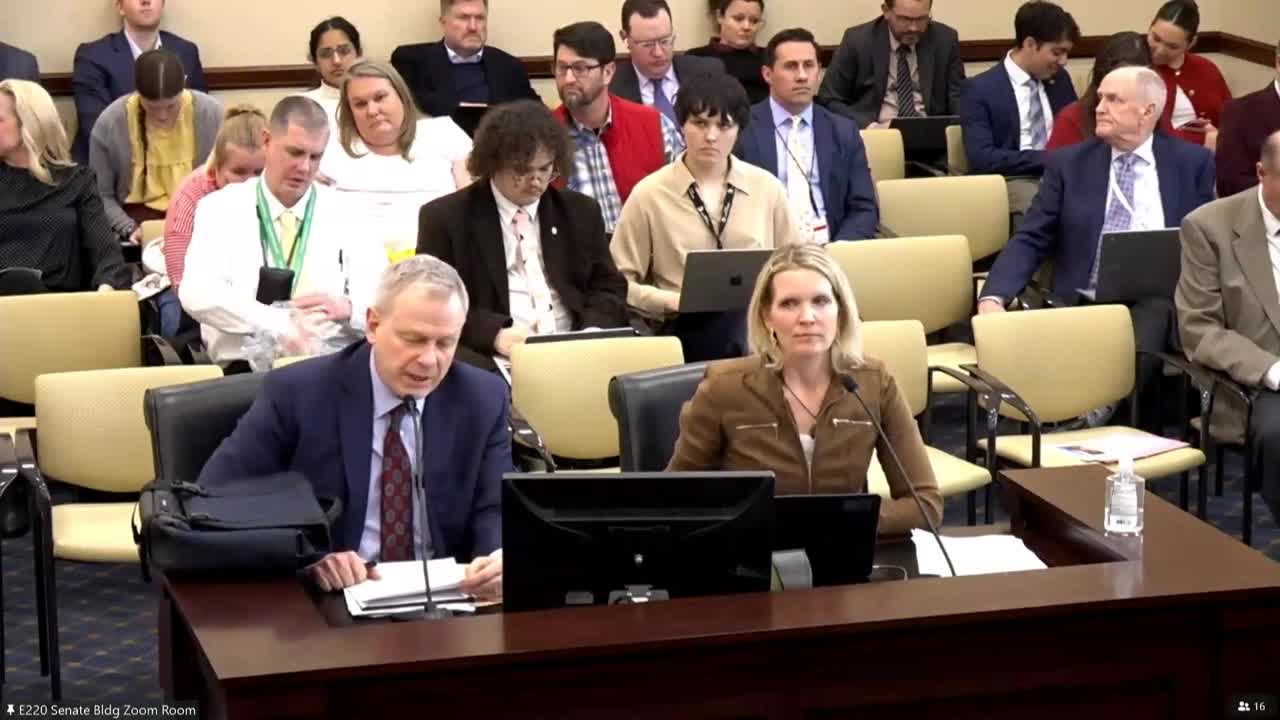Committee backs HB328 to limit spray irrigation in new development in Great Salt Lake Basin
Get AI-powered insights, summaries, and transcripts
Subscribe
Summary
The committee passed HB328, which restricts overhead spray irrigation for new commercial, multifamily, industrial and institutional development in the Great Salt Lake drainage, encouraging drip systems for non‑active-use areas and leaving enforcement to municipalities.
Representative Owens introduced HB328 and invited Candace Hassenjager, director of the Division of Water Resources, to explain Utah's water challenges and how landscapes factor into conservation.
Hassenjager told the committee as much as 60% of municipal water is used outdoors, and that inefficient irrigation and overhead spray waste significant water through runoff, wind and evaporation. She said switching to trees, shrubs, mulch and drip irrigation can cut outdoor demands dramatically.
The bill applies in the Great Salt Lake drainage and limits overhead spray irrigation to areas intended for human activity (parks, playgrounds, cemeteries). In other areas it encourages installing drip irrigation for new commercial, multi‑family, industrial and institutional projects. Municipalities are required only to notify developers of the prohibitions and may optionally enforce them rather than being mandated to do so.
Supporters from conservation and water-management organizations testified in favor. Brian Steed, Great Salt Lake Commissioner, said a large amount of turf in the basin presents potential water savings equivalent to "about a hundred thousand different football fields one foot deep in water" if irrigation were optimized. Rulon Eric LeBaron (Cottonwood Heights) and representatives of Utah Waterways and Bear River Canal Company also urged passage. Justin Lee, deputy director of the Utah League of Cities and Towns, said the League was neutral and appreciated that the bill avoids new mandatory municipal enforcement burdens.
Opponents from the green-industry and turf sector cautioned that the bill assumes subsurface or drip irrigation always conserves more water than spray systems and warned about local aquifer dynamics. Several growers and sod farmers argued natural turf provides benefits via evapotranspiration and urban cooling and cautioned against an overly prescriptive approach; they urged incentives and education as alternatives.
Action: Representative Owens moved the bill as amended (Amendment 1 addressing mining/industrial exceptions). The committee adopted the amendment and then passed HB328 as amended by voice vote; the motion passed unanimously.
Ending: The measure extends last year’s water‑efficient landscaping requirement for government projects to certain types of private development in the Great Salt Lake Basin and relies on local notification and voluntary enforcement to encourage water‑wise landscapes.
